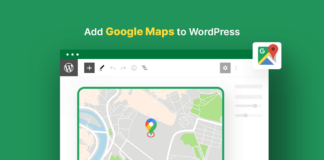The finest blogging platforms make starting and setting up a blog quick and easy. This chore may seem boring at best because there are so many blogging platforms available. Yet, you’ll undoubtedly want a blog to interact with like-minded people globally and share your opinions and ideas with them. And in order to set up a blog, you’ll need a blogging platform.
The main goal of blogging platforms is to make it possible for writers to quickly and easily publish content (whether articles, product reviews, or thoughts) via standalone websites, social networking sites, or email. Given that a well-written blog may attract a larger audience and develop a global following, these platforms can also offer effective tools for marketing and brand promotion.
So, you need to choose the best blogging platform available before you put your creative hat on and start cranking out content to delight your virtual visitors from all over the world. Check out our hand-picked list of which blogging platform is best before taking action, since we want to make your life a little easier.
Table of Contents
What to Look for Before Choosing the Perfect Platform to Start Your Blog?
The basis for your online presence is laid by choosing the appropriate blogging platform. It has an impact on the look, feel, usability, and even content management of your website. A platform that is right for you gives you the freedom to concentrate on producing and distributing content while giving your viewers a smooth experience.
Factors to Consider When Choosing a Blogging Platform:
Purpose and Goals of Your Blog
Your ability to choose the features and functions you need from a blogging platform is aided by clearly defining the purpose and objectives of your site. Clarity on your goals is crucial, whether you want to share personal experiences, make money through your blog, or build a professional brand.
Customization and Design Options
To establish a distinctive brand identity, it’s critical to have control over the look and feel of your blog. To represent your tastes and style, look for platforms that have a large selection of themes, templates, and customization choices.
Ease of Use and User-Friendliness
As a blogger, you should put your attention on producing content rather than wrangling with technological issues. To effectively maintain your blog, pick a platform that is simple to use, straightforward, and has a user-friendly interface.
Scalability and Growth Potential
Think about the platform’s potential for long-term growth. You’ll need a platform that can manage higher traffic levels and has scalability choices as your blog gets popularity and draws more traffic.
SEO Capabilities
For your blog to receive organic traffic, search engine optimization (SEO) is essential. Make sure the platform you choose offers strong SEO capabilities, such as adaptable URLs, meta descriptions, XML sitemaps, and simple SEO plugin integration.
Integration with Other Tools and Services
Consider how well the platform integrates with any additional tools or services you might require, like analytics software, social media integration, email marketing software, and e-commerce solutions. Integration features might increase your blog’s functionality and audience.
With all that in mind, let’s compare which blogging platform is best.
WordPress.org
WordPress.org was initially developed as a blogging platform, and as of now, it runs more than 43% of all websites on the internet. It strikes an ideal balance between simplicity of use and more potent capabilities.
As you’re paying for a comprehensive service, you can leave the technical aspects in the hands of WordPress’s staff, including taking care of the domain name, maintaining the security of your website, and providing web hosting services.
There are several free WordPress themes available online, each with a wide range of customization choices and flexible font selections. Moreover, they provide specialist customer service, make it simple to integrate Google Analytics, and have a plugin that can process credit card payments.
Although there is a free tier, it is only appropriate for blogs that are not for profit, as it displays WordPress advertisements on your site but disables the potential to make money from it.
Nevertheless, you may just download WordPress.org’s free blogging program and put it up on a web hosting account yourself. In part, because many web hosts use CPanel, which frequently comes with WordPress pre-installed as a one-click installation, the procedure is straightforward and quick. Many personal and corporate websites use this method because it gives you so much freedom to customize your website without being constrained by the restrictions of a paid website builder.
Pricing: Full free to use
WordPress.com
While being created by the same team, WordPress.com differs significantly from its.org cousin. For those who wanted the functionality of WordPress.org but didn’t want to deal with the headache of all the technical concerns, WordPress.com was first developed (like hosting). There are a few advantages to WordPress.com for beginners.
It’s one of the best free WordPress hosting companies available, to start. Also, you may install plugins, change the look, add users, and select your own theme. But, compared to WordPress.org, such functionalities are somewhat more constrained.
After registering, you may immediately begin writing your first blog post, with no setup required. A basic account is also free. The capabilities of the free plans are limited, but you may add your own URL and install some premium themes and plugins. For bloggers, JetPack’s built-in site metrics, backups, security measures, and extended search capability are ideal.
Pricing: The premium plan starts at $4
Blogger
Every veteran blogger would likely say that Blogger was the platform they used to launch their blog if you ask them. The fact that you already have a Blogger account because of your Google account gives Google’s blogging service significant advantages over the competition, even more than 20 years later.
Budget-conscious people will be happy to learn that Blogger is totally free, and you’ll also obtain a “blogspot.com” subdomain. You may add a custom domain name with just a few clicks by purchasing it from a third-party domain registrar.
One of the easiest blogging systems available is Blogger, and it even comes with a selection of layouts that may be further modified.
Since it’s a Google product, Google Analytics, which will supply information about your website’s visitors that can be utilized to increase traffic, can simply be integrated with it.
Also, you can connect Google AdSense to your blog, which will evaluate your material and show pertinent ads to monetize it. In other words, you can pay for the coffee as you sit in Starbucks and blog until the wee hours.
Is there any reason not to utilize Blogger with all that going for it? As Blogger only offers the most fundamental blogging features, your site will eventually outgrow it as it develops. Moreover, switching from Blogger to another platform might be challenging, but not impossible.
Generally, though, Blogger lacks the features and adaptability of competing platforms like WordPress but is still simple to use and set up.
Pricing: Full free to use
Tumblr
Tumblr is at the opposite end of the spectrum from other blogging platforms that encourage users to develop and blur the boundary between a blog and a fully-fledged website. But given that it claims to have an astounding 551 million different blogs, it must be doing something right.
It emphasizes shorter information, such as only an image or link, and concentrates on the more condensed end of the spectrum, giving the impression that it is more of an alternative social networking platform. Posts have shorter-form text and include a range of media, including pictures, jokes, quips, Spotify tracks, and videos (keep in mind that adult content is no longer welcome). You may follow other blogs and repost articles you like on your own blog, much as with social networking sites.
Tumblr’s simplicity and mobile friendliness are its key advantages, and it is free to use. For more ambitious blogs, it is less than ideal because there is no direct mechanism to monetize the material, and it all stays in the Tumblr ecosystem.
To be fair, you could link your Tumblr blog to your online store, company website, or YouTube channel, or you could add ads through services like Google Adsense, Yahoo Bing Contextual Ads, and Infolinks. You can’t do it directly through Tumblr, though.
Pricing: It’s free with Tumblr’s subdomain
Wix
If you’re looking for a blogging platform to launch a personal blog or create a business website, Wix—one of the industry’s top players—has undoubtedly come up in your search.
It truly is as easy as choosing a template from their large selection and customizing it with Wix, which offers features that appeal primarily to beginners in the blogging game while being basic but not simplistic. The drawback is that once you select a template, you cannot alter it without completely redesigning your website, which might be, at best, inconvenient.
Even better, Wix enables you to preview your blog template on a PC and mobile device before committing to it. For individuals wishing to get more followers, advertise themselves or a company, or perhaps make some money, Wix offers its blogging capabilities.
With Wix, you can start a blog for free (as long as you already have a domain name and don’t mind Wix branding on it), use sophisticated SEO technologies like AMP and Schema to drive visitors to your blog, and get a customized SEO strategy to improve your search engine exposure.
Wix features a scheduling tool as well, allowing you to compose your blog posts whenever it’s most convenient for you and then plan for them to go live at the most advantageous moment.
Pricing: Wix premium plan starts at $16
The Greatest Blogging Platform According to Us
We think WordPress.org performs better than any other blogging platforms. Among all the blogging platforms available, it is the most versatile, powerful, and reasonably priced. These are all the justifications for using WordPress.
Millions of bloggers worldwide utilize WordPress, the most well-liked and flexible blogging software. It is appropriate for bloggers of all experience levels because to its broad variety of features, customization possibilities, and plugin ecosystem.
We hope you liked this article on which blogging platform is best in 2023. If you liked this post, then please subscribe to the WPinLearn YouTube channel for WordPress video tutorials. Join the WPinLearn community and follow us on Twitter.
FAQs: Frequently Asked Questions
Can I switch blogging platforms after starting my blog?
Certainly, switching blogging platforms is doable, but doing so may need some technical labor and carry some risk of losing data or SEO rankings. Carefully consider consulting a specialist if necessary and plan the relocation.
Can I monetize my blog on platforms like Tumblr and Blogger?
With websites like Medium and Blogger, you may make money from your blog. They include alternatives for integrating sponsor material, advertising networks, and even creating your own online store.
Do blogging platforms affect SEO rankings?
Indeed, your SEO rankings might be impacted by the blogging platform you use. To maximize your blog’s visibility in search engines, look for platforms that offer SEO-friendly features like configurable URLs, meta tags, mobile responsiveness, and simple integration with SEO plugins.





